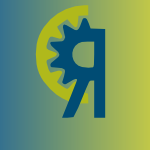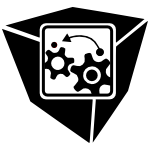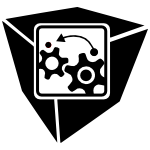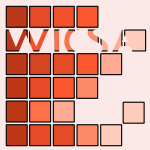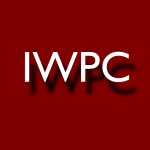Travelled to:1 × Australia
1 × Belgium
1 × Greece
1 × Norway
1 × Portugal
1 × Spain
1 × Switzerland
2 × Hungary
2 × Ireland
2 × The Netherlands
4 × Italy
5 × Germany
7 × Canada
8 × USA
Collaborated with:∅ T.Eisenbarth J.Girard D.Simon J.Quante T.Mende S.Bazrafshan N.Göde R.Falke R.Tiarks A.Christl M.D.Storey G.Schied J.Czeranski P.Frenzel D.Lüdemann B.Katzmarski A.Hemel B.Scholz A.v.Deursen C.K.Roy M.F.Zibran B.J.Berger K.Sohr J.Peleska M.Leszak C.K.Roy J.R.Cordy G.Vogel G.Canfora H.M.Kienle T.Roehm W.Maalej F.Beckwermert G.Meier A.P.J.Breu K.Angstmann R.Klein J.Favre J.Rilling C.Hofmeister L.Moonen C.Riva R.Ferenc S.E.Sim R.C.Holt T.Gyimóthy E.Plödereder Y.Z.V M.Würthner
Talks about:clone (13) detect (10) softwar (9) program (8) recoveri (6) use (6) architectur (5) reflexion (5) abstract (5) featur (5)
♂ Person: Rainer Koschke
 DBLP: Koschke:Rainer
DBLP: Koschke:Rainer
Facilitated 11 volumes:
Contributed to:
Wrote 51 papers:
- SCAM-2015-LudemannK #control flow #graph
- From preprocessor-constrained parse graphs to preprocessor-constrained control flow (DL, RK), pp. 211–220.
- CSMR-WCRE-2014-RoyZK #past present future
- The vision of software clone management: Past, present, and future (CKR, MFZ, RK), pp. 18–33.
- SCAM-2014-BazrafshanK #debugging #developer #performance
- Effect of Clone Information on the Performance of Developers Fixing Cloned Bugs (SB, RK), pp. 1–10.
- CSMR-2013-BergerSK #architecture #security
- Extracting and Analyzing the Implemented Security Architecture of Business Applications (BJB, KS, RK), pp. 285–294.
- ICSM-2013-BazrafshanK #empirical
- An Empirical Study of Clone Removals (SB, RK), pp. 50–59.
- CSMR-2012-Koschke #clone detection #detection #scalability #using
- Large-Scale Inter-System Clone Detection Using Suffix Trees (RK), pp. 309–318.
- ICPC-2012-KatzmarskiK #complexity #metric
- Program complexity metrics and programmer opinions (BK, RK), pp. 17–26.
- ICSE-2012-RoehmTKM #developer #how #question
- How do professional developers comprehend software? (TR, RT, RK, WM), pp. 255–265.
- WCRE-2012-HemelK #case study #clone detection #detection #linux #reverse engineering #source code #using #variability
- Reverse Engineering Variability in Source Code Using Clone Detection: A Case Study for Linux Variants of Consumer Electronic Devices (AH, RK), pp. 357–366.
- CSMR-2011-MendeKP #case study #fault #integration #on the #predict #testing
- On the Utility of a Defect Prediction Model during HW/SW Integration Testing: A Retrospective Case Study (TM, RK, JP), pp. 259–268.
- ICSE-2011-GodeK #clone tracking #risk management
- Frequency and risks of changes to clones (NG, RK), pp. 311–320.
- WCRE-2011-BazrafshanKG #approximate #code search
- Approximate Code Search in Program Histories (SB, RK, NG), pp. 109–118.
- WCRE-2011-ScholzK #multi #protocol #source code #thread
- Object-Based Dynamic Protocol Recovery for Multi-Threading Programs (BS, RK), pp. 251–260.
- CSMR-2010-Koschke #analysis #incremental
- Incremental Reflexion Analysis (RK), pp. 1–10.
- CSMR-2010-MendeK #fault #modelling #predict
- Effort-Aware Defect Prediction Models (TM, RK), pp. 107–116.
- CSMR-2009-GodeK #clone detection #detection #incremental
- Incremental Clone Detection (NG, RK), pp. 219–228.
- CSMR-2009-MendeKL #evolution #fault #modelling #predict #scalability
- Evaluating Defect Prediction Models for a Large Evolving Software System (TM, RK, ML), pp. 247–250.
- SCAM-2009-TiarksKF #assessment #detection #state of the art #tool support
- An Assessment of Type-3 Clones as Detected by State-of-the-Art Tools (RT, RK, RF), pp. 67–76.
- SCAM-J-2009-TiarksKF11 #assessment #detection #state of the art #tool support
- An extended assessment of type-3 clones as detected by state-of-the-art tools (RT, RK, RF), pp. 295–331.
- CSMR-2008-MendeBKM #clone detection #detection #evolution #product line #using
- Supporting the Grow-and-Prune Model in Software Product Lines Evolution Using Clone Detection (TM, FB, RK, GM), pp. 163–172.
- ICPC-J-2008-RoyCK09 #approach #clone detection #comparison #detection #evaluation #tool support
- Comparison and evaluation of code clone detection techniques and tools: A qualitative approach (CKR, JRC, RK), pp. 470–495.
- WCRE-2007-FrenzelKBA #product line
- Extending the Reflexion Method for Consolidating Software Variants into Product Lines (PF, RK, APJB, KA), pp. 160–169.
- WCRE-2007-QuanteK #protocol
- Dynamic Protocol Recovery (JQ, RK), pp. 219–228.
- CSMR-2006-QuanteK #graph #process
- Dynamic Object Process Graphs (JQ, RK), pp. 81–90.
- WCRE-2006-KoschkeFF #clone detection #detection #syntax #using
- Clone Detection Using Abstract Syntax Suffix Trees (RK, RF, PF), pp. 253–262.
- ASE-2005-KoschkeQ #feature model #on the
- On dynamic feature location (RK, JQ), pp. 86–95.
- VISSOFT-2005-FalkeKKQ #dependence #visualisation
- The Dominance Tree in Visualizing Software Dependencies (RF, RK, RK, JQ), pp. 83–88.
- WCRE-2005-ChristlKS #automation #clustering
- Equipping the Reflexion Method with Automated Clustering (AC, RK, MADS), pp. 89–98.
- WCRE-J-2005-ChristlKS07 #automation #clustering
- Automated clustering to support the reflexion method (AC, RK, MADS), pp. 255–274.
- WICSA-2005-Koschke #architecture #reverse engineering #what
- What Architects Should Know About Reverse Engineering and Rengineering (RK), pp. 4–10.
- WICSA-2004-DeursenHKMR #architecture #named #re-engineering
- Symphony: View-Driven Software Architecture Reconstruction (AvD, CH, RK, LM, CR), pp. 122–134.
- IWPC-2003-DeursenFKR #case study #comprehension #education #evolution #experience
- Experiences in Teaching Software Evolution and Program Comprehension (AvD, JMF, RK, JR), pp. 283–284.
- WCRE-2003-KoschkeS #modelling
- Hierarchical Reflexion Models (RK, DS), pp. 36–45.
- ICSM-2002-EisenbarthKS #incremental #scalability #source code
- Incremental Location of Combined Features for Large-Scale Programs (TE, RK, DS), pp. 273–282.
- ICSM-2002-Koschke #architecture #component #comprehension #evolution
- Atomic Architectural Component Recovery for Program Understanding and Evolution (RK), pp. 478–481.
- WCRE-2002-EisenbarthKV
- Static Trace Extraction (TE, RK, GV), p. 128–?.
- CSMR-2001-EisenbarthKS #component #concept analysis
- Derivation of Feature Component Maps by Means of Concept Analysis (TE, RK, DS), pp. 176–179.
- ICSM-2001-EisenbarthKS #analysis #comprehension
- Aiding Program Comprehension by Static and Dynamic Feature Analysis (TE, RK, DS), pp. 602–611.
- IWPC-2001-EisenbarthKS #comprehension #concept analysis #execution #using
- Feature-Driven Program Understanding Using Concept Analysis of Execution Traces (TE, RK, DS), pp. 300–309.
- SVIS-2001-Koschke #reverse engineering #visualisation
- Software Visualization for Reverse Engineering (RK), pp. 138–150.
- WCRE-2001-FerencSHKG #c #c++ #standard #towards
- Towards a Standard Schema for C/C++ (RF, SES, RCH, RK, TG), pp. 49–58.
- IWPC-2000-KoschkeE #clustering #evaluation #framework
- A Framework for Experimental Evaluation of Clustering Techniques (RK, TE), pp. 201–210.
- WCRE-2000-CanforaCK #approach #component
- Revisiting the Delta IC Approach to Component Recovery (GC, JC, RK), pp. 140–149.
- WCRE-2000-CzeranskiEKKPSZGW
- Data Exchange in Bauhaus (JC, TE, HMK, RK, EP, DS, YZV, JFG, MW), pp. 293–295.
- WCRE-2000-CzeranskiEKKS #tool support #using
- Analyzing xfig Using the Bauhaus Tools (JC, TE, HMK, RK, DS), pp. 197–199.
- WCRE-1999-Koschke #automation #component #incremental
- An Incremental Semi-Automatic Method for Component Recovery (RK), p. 256–?.
- WCRE-1998-KoschkeG #analysis #representation #reverse engineering
- An Intermediate Representation for Reverse Engineering Analyses (RK, JFG), pp. 241–250.
- ASE-1997-GirardKS #approach #data type #detection
- A Metric-based Approach to Detect Abstract Data Types and State Encapsulations (JFG, RK, GS), pp. 82–89.
- ICSM-1997-GirardK #architecture #component #comprehension #towards
- Finding Components in a Hierarchy of Modules: a Step towards Architectural Understanding (JFG, RK), pp. 58–65.
- WCRE-1997-GirardKS #architecture #comparison #comprehension #data type #detection #encapsulation
- Comparison of Abstract Data Type and Abstract State Encapsulation Detection Techniques for Architectural Understanding (JFG, RK, GS), pp. 66–75.
- WCRE-J-1997-GirardK00 #comparison #data type
- A comparison of abstract data types and objects recovery techniques (JFG, RK), pp. 149–181.













